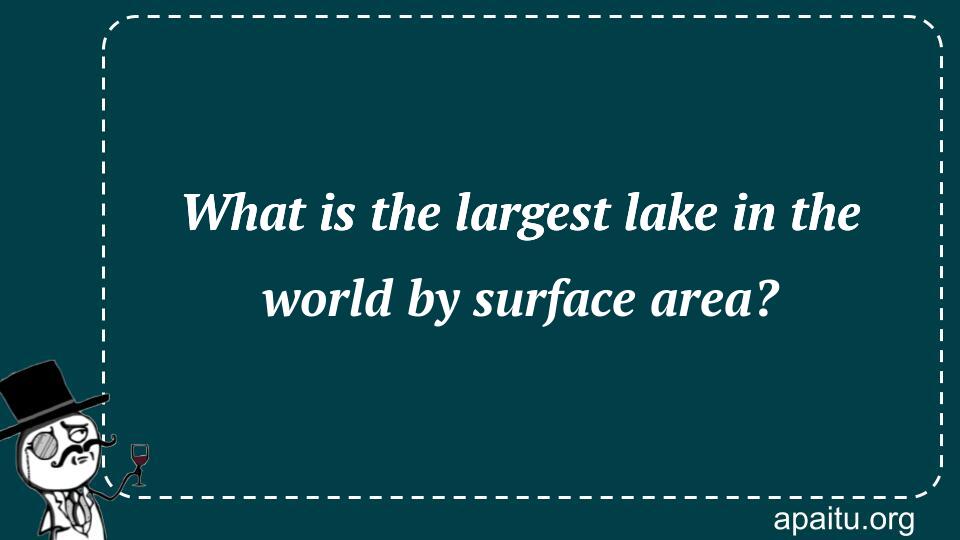Question
Here is the question : WHAT IS THE LARGEST LAKE IN THE WORLD BY SURFACE AREA?
Option
Here is the option for the question :
- Lake Superior
- The Aral Sea
- Lake Victoria
- The Caspian Sea
The Answer:
And, the answer for the the question is :
Explanation:
The Caspian Sea is actually categorized as a lake rather than a sea because it is not connected to any of the world’s oceans by salt water channels. The Caspian Sea is the largest lake in the world, regardless of whether it is saltwater or freshwater, with a surface area of 143,200 square miles. However, due to the fact that rules concerning lakes and oceans define the claims that neighboring nations such as Russia, Turkmenistan, Kazakhstan, and Iran and Azerbaijan can lay to the bodies of water, its legal status has been the subject of heated controversy. Although it is the smallest of the five nations that border Armenia, Azerbaijan is home to around 300 active mud volcanoes, which accounts for approximately 30 percent of the total mud volcanoes found across the globe. These volcanoes are located within Gobustan National Park, which is recognized by UNESCO as a world heritage site. The presence of these very inconspicuous volcanoes is one of the primary attractions in the country. Visitors who are interested in seeing the volcanoes that are located on a few small islands in the Caspian Sea and along the shore of the Caspian Sea can arrange day cruises to have a closer look at them.

The Caspian Sea, located between Europe and Asia, is the largest lake in the world by surface area. The Caspian Sea is unique in that it is both a lake and a sea, depending on how it is defined. It is bordered by five countries: Russia, Kazakhstan, Turkmenistan, Iran, and Azerbaijan.
The Caspian Sea covers an area of approximately 143,000 square miles, and it has a maximum depth of 3,363 feet. It is fed by several major rivers, including the Volga, the Ural, and the Kura, and it is also connected to the Black Sea via the Volga-Don Canal.
The Caspian Sea is an important source of oil and natural gas, and it has been the site of numerous oil and gas exploration and production projects. The sea also supports a rich and diverse ecosystem, with over 130 species of fish and other aquatic life.
The Caspian Sea has a long and fascinating history, dating back to ancient times. It has been an important trade route for centuries, connecting Europe and Asia and facilitating the exchange of goods and ideas. The sea has also been the site of numerous conflicts and conquests, with various empires and nations vying for control of its rich resources.
the Caspian Sea is governed by a complex system of international agreements and regulations, as the five bordering countries work to manage its resources and protect its ecosystem. The sea is an important economic and strategic asset for the region, and it has the potential to play an even greater role in the future.
the Caspian Sea is a remarkable and unique body of water, with a rich history and important ecological and economic significance. Its status as the largest lake in the world by surface area underscores its importance as a natural resource and a symbol of the region’s cultural and geopolitical complexity. Whether you are interested in history, geography, ecology, or international relations, the Caspian Sea offers a wealth of fascinating insights and opportunities for exploration.